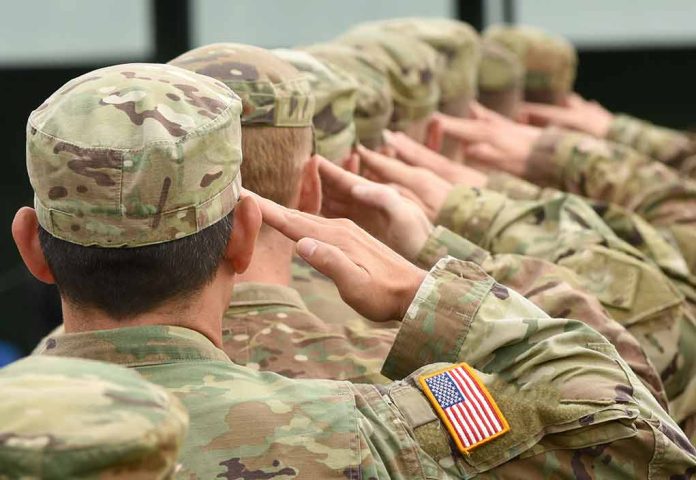
A report reveals missed opportunities to prevent the deadliest mass shooting in Maine’s history, exposing failures by both military and law enforcement.
At a Glance
- A special commission investigated the Lewiston mass shooting that left 18 dead
- The report highlights missed chances by Army Reserves and local police to intervene
- Law enforcement had the authority to seize the shooter’s guns weeks before the tragedy
- The Army Reserve disciplined three leaders for dereliction of duty
- Maine passed new gun laws following the shootings, including a waiting period
Missed Opportunities and Systemic Failures
A special commission’s final report on the Lewiston mass shooting has laid bare a series of critical failures by both military and law enforcement officials. The report, which follows months of intense hearings and evidence review, reveals that the tragedy that claimed 18 lives could potentially have been prevented had proper procedures been followed and warning signs heeded.
The commission’s findings paint a troubling picture of missed opportunities and institutional negligence. For instance, both the Army Reserves and local law enforcement had multiple chances to address the gunman’s, Army reservist Robert Card’s, escalating psychiatric crisis but failed to take decisive action, according to the report.
Army Reserve Unit and local police missed “several opportunities” to intervene before last year’s mass shooting in Lewiston, Maine, according to an independent commission’s final report. https://t.co/7uGgUFoUhw
— Breaking News (@BreakingNews) August 20, 2024
Military and Law Enforcement Shortcomings
The report is particularly critical of the Army Reserves’ handling of the situation. It cites a “series of failures by unit leadership” in addressing the gunman’s deteriorating mental state. Despite clear indications of paranoid and delusional behavior, including a hospitalization in July 2023, the military failed to provide adequate care or alert civilian authorities to the potential threat.
Kathleen Walker, whose husband was killed by Card, stated, “The system failed, and we can’t allow this to happen again.”
Local law enforcement, particularly the Sagadahoc County Sheriff’s Office, came under fire in the report. The commission found that deputies had probable cause to take the gunman into protective custody and seize his weapons as early as September 2023, weeks before the shooting. This failure to act, despite Maine’s yellow flag law granting such authority, represents a critical missed opportunity to prevent the tragedy.
Stark Warnings Ignored
Perhaps most alarming were the explicit warnings that the report said went unheeded. A fellow reservist had texted an Army supervisor about the gunman’s potential for violence, stating bluntly, “I believe he’s going to snap and do a mass shooting.” This chilling prediction, tragically accurate, underscores the urgency of the situation that was overlooked by those in positions of authority.
The commission’s chair, Daniel Wathen, acknowledged the profound impact of the shooting on the community and the victims’ families. “None of us can begin to imagine the pain you people have experienced on that terrible day,” he said, emphasizing the report’s aim to bring truth to light and help prevent future tragedies.
Moving Forward
In the wake of the shootings, Maine’s legislature has passed new laws including a controversial three-day waiting period for gun purchases. The Army Reserve has also conducted its own investigation, resulting in disciplinary actions against three leaders for dereliction of duty and recommendations for updating behavioral health care procedures.
As the community continues to heal, the commission’s findings serve as a sobering reminder of the importance of vigilance, communication, and decisive action in preventing such tragedies. The report’s revelations call for a thorough reassessment of protocols and policies at both the military and law enforcement levels to ensure that future warning signs are not ignored.
Sources
- Army and police missed opportunities to potentially stop Maine mass shooter, report says
- Army and police missed chances to intervene before Maine mass shootings, special commission report finds
- Final report outlines missed opportunities to stop Maine’s deadliest shooting












